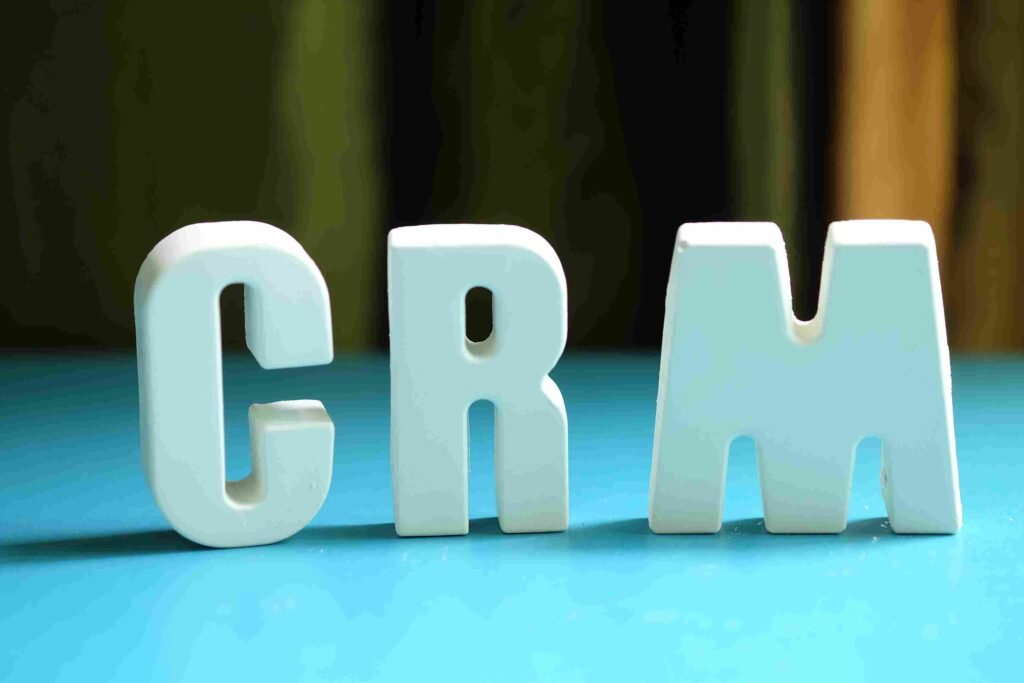What is CRM Software ?
What is CRM (Customer Relationship Management) Software ?
How businesses manage and analyze interactions with present and future customers is referred to as Customer Relationship Management (CRM). The intention of CRM is to develop connections in business, advance clients’ gratification, and stimulate augmentation.


Essential elements of a CRM
1.Contact Management:
This feature provides a centralized database that holds customer information such as name, address, phone number, etc. It enables businesses to monitor all interactions with customers effectively.
2. Sales Management:
This function encompasses the entire sales cycle, from generating leads to finalizing sales. It involves monitoring sales opportunities, predicting future sales trends, and managing the sales pipeline.
3. Customer Service Management:
This component includes systems that facilitate customer interactions and manage support requests, ensuring customers receive prompt and effective assistance and enhancing the overall customer experience.
4. Marketing Automation:
These tools are crucial for streamlining marketing activities like email campaigns, social media posts, and ad management. They enable businesses to send targeted messages to the appropriate audience at the best possible times.
5. Analytics and Reporting Tools:
These tools are used to analyze customer data and create reports, providing valuable insights into customer behavior, identifying trends, and supporting data-driven decision-making.
6. Workflow Automation:
This involves automating routine tasks and processes, such as follow-ups, task assignments, and notifications, to improve efficiency and productivity.
7. Collaboration Tools:
These features facilitate team collaboration and communication by providing shared calendars, task management, and document-sharing options.
8. Integration Capabilities:
The ability to connect with various business systems and applications, such as email clients, ERP systems, and e-commerce platforms, ensures seamless information flow across the entire organization.
9. Mobile Access:
Remote access to CRM tools and data from mobile devices allows sales and service teams to access crucial information even when they are away from the office.
10. Data Management and Security:
Tools are in place to manage the collection, storage, and organization of customer data, ensuring data privacy and security.
Features of CRM:
An organization can greatly benefit from a Customer Relationship Management (CRM) system be it – a small enterprise or a large corporation. CRM systems allow businesses to handle customer interactions, streamline operations, and boost customer satisfaction.
1. Contact Management
-
A Centralized Database: A unified platform to store and manage contact details such as names, addresses, and so on. - Interaction Tracking: A system to log customer interactions, including phone calls, emails, and meetings.
2. Sales Management
- Lead and Opportunity Management: Tools to track potential sales opportunities and manage the pipeline.
- Sales Forecasting: Tools to predict future sales by analyzing historical data and current trends.
3. Marketing Automation
-
Campaign Management: Tools to plan, execute, and monitor marketing campaigns across various email and social media channels. -
Email Marketing: Features to design and send targeted email campaigns, track open and click rates, and automate follow-up emails. - Lead Scoring: Automated scoring based on customer interactions and behaviors to prioritize sales efforts.
4. Customer Service and Support
-
Ticketing System: A system to handle customer support requests, assign tickets to support agents, and track the progress of resolutions. - Knowledge Base: A self-service portal where customers can find answers to common questions and issues.
- Live Chat and Chatbots: Real-time support options via live chat or automated chatbots.
5. Analytics and Reporting
-
Dashboard and Reporting: Tools to create real-time reports and visual dashboards for monitoring key metrics like sales performance, customer satisfaction, and campaign effectiveness.
6. Integration and Customization
-
Third-Party Integrations: The ability to integrate with other tools and platforms, such as email, social media, and ERP systems. -
Customization: Options to tailor the CRM system to meet specific business needs, including custom fields, workflows, and modules.
7. Mobile Access
-
Mobile Apps: Access CRM features on mobile devices, allowing sales and support teams to work from anywhere.
8. Security and Privacy
-
Data Security: Measures to protect sensitive customer data through encryption, access controls, and compliance with data protection regulations. -
User Permissions: Role-based permissions to control who can access and modify information within the CRM system.
Finding the right CRM can make all the difference. Explore our Top CRM Software Comparison for a clear breakdown of the best tools on the market.
Most Recent Posts
- All Post
- CRM
- E-Commerce
- HRMS
- LMS
- POS


